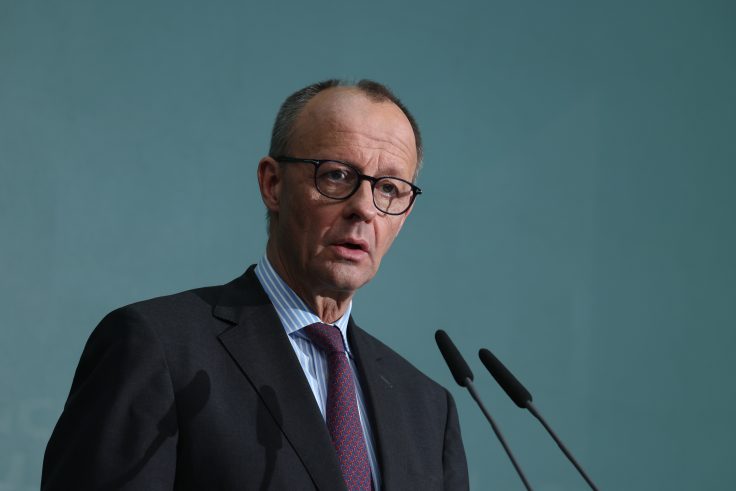The news that senior members of the Trump administration's foreign policy team inadvertently invited a critical journalist onto a group chat that discussed the Yemen bombing campaign has roiled Washington. After two months of disruption, the Beltway is settling into its first classic scandal of this presidential term.
But while Americans argue about classification standards and parse the precise distinction between "war plans" and "attack plans," the rest of the world focuses on what the conversation reveals about the administration’s attitudes toward them. Europe is confronting the depths of Trumpian disdain revealed in the texts. Some countries are making important progress on defense. The question is if it will be enough.
Vice President J.D. Vance was critical of the whole bombing idea, which Trump appears to have decided on before the chat commenced. "I am not sure the president is aware how inconsistent this is with his message on Europe right now," he wrote. National Security Adviser Mike Waltz pointed out, "European navies do not have the capability to defend against the types of sophisticated, antiship, cruise missiles, and drones the Houthis are now using." But he agreed, "we absolutely ad [sic] this to [the list] of horribles on why the Europeans must invest in their defense."
Vance deferred to Defense Secretary Pete Hegseth before ending, "I just hate bailing Europe out again." Hegseth replied, "I fully share your loathing of European free-loading. It’s PATHETIC. But Mike is correct, we are the only ones on the planet (on our side of the ledger) who can do this. Nobody else even close."
Trump’s reasons for ordering the strike were not leaked in the chat, but the fact that Americans would defend freedom of navigation should surprise nobody. Thomas Jefferson was the first president to send American forces into combat in the Middle East on that mission. Andrew Jackson, whose portrait Trump displays in the Oval Office, was especially ferocious in that regard.
Seeing a cabinet official describe American allies as "pathetic" may shock, but the Trump administration's jaundiced view of European defense policy should not surprise either. Both in this term and the last, President Trump has forcefully and clearly stated that Europe needs to spend more on defense.
Europe is starting to take him seriously. Friedrich Merz, the German conservative who is the favorite to become Germany’s next chancellor, said shortly after February’s election that "the rule for our defense now has to be ‘whatever it takes.’" Earlier this month, he brokered a deal to allow for much more defense spending once he forms a government. Germany has been Europe’s most significant laggard on security, so this is a welcome step.
German leadership is necessary, but insufficient on its own. Berlin does not dominate Europe the way Washington does NATO. For example, Germany’s economy is about a quarter of the European Union's total GDP, whereas the U.S. economy is far larger than the rest of NATO’s combined. Europe’s economy nonetheless implicitly depends on German bailouts in emergencies, so debt prices spiked across the continent when Merz said he’d spend "whatever it takes." Germany is on the hook for Europe, but cannot command it.
The EU leadership is attempting to fill this void, but it is struggling to come up with funds for defense. Germany and a handful of smaller economies pay into the EU’s budgets more than they receive, and they want to issue loans for a common defense fund. France, Italy, and Spain, which account for more than a third of the EU’s GDP between them, have already borrowed more than their economies produce in a year and want to receive grants instead. They are blocking the EU proposal.
Paris is nonetheless salivating over European rearmament, and its mercantilists are trying to extract every possible advantage. The EU is excluding British arms manufacturers from consideration from any common defense purchases, unless London yields on "sensitive" issues such as giving Europeans more access to British fishing grounds. From France’s perspective, this is a win-win. Either French fishermen benefit directly, or French defense companies face less competition. The only losers? Everyone else.
Some of the other Europeans are stepping up, but they lack the heft to lift Europe on their own. Poland and the Baltic countries are already spending a lot on defense, and the Scandinavians are not far behind.
Since World War II, Europe has worked best when Germany has had a partner in leadership. It will not be able to defend itself, let alone trade arteries like the Red Sea, until Merz finds one. He is off to a good start, and Europe cannot afford for him to slow down.
